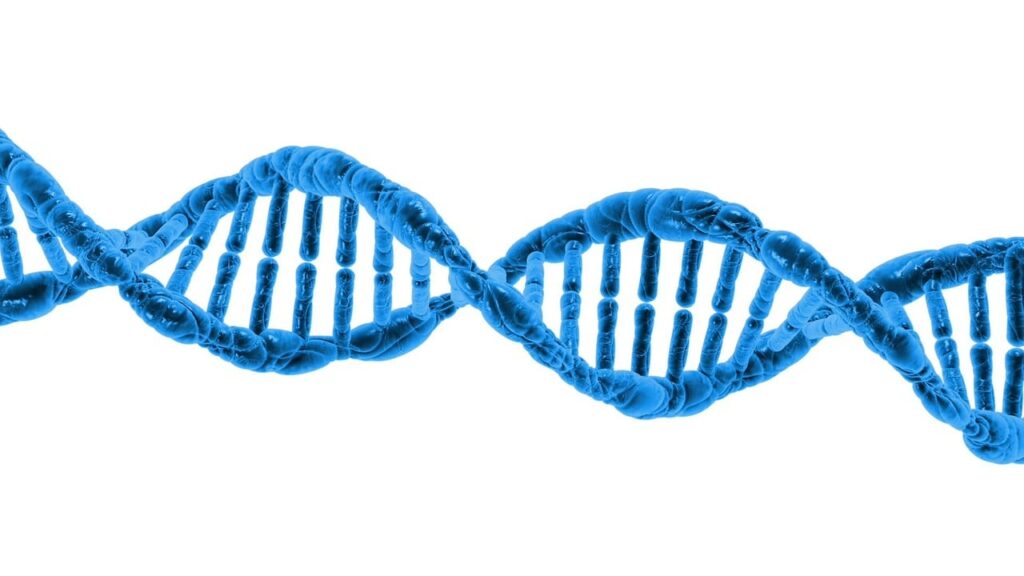I want to broach the topic of epigenetics here from more of a cultural perspective than a biological one. But first, we need to understand what the difference is between genetics and epigenetics.
What are Epigenetics?
Epigenetics refers to the changes in the gene expression undergone by an organism over time. This is separate from the idea of genes, which are heritable alleles passed on generationally. As opposed to generational inheritance, epigenetics refers to changes happening to the expression of our genes during our lifetime. Genes themselves don’t change barring a mutation. Genes are a set of nucleotides unique to each person that code for a particular set of proteins. Depending on various factors including things like histone acetylation, genes can code for different proteins with nucleotides encoded by the genome. Epigenetics refers to the system by which certain portions of the genome are able to provide instructions for creating a specific protein. There’s been a lot of recent research supporting the idea that these epigenetic systems might be heritable, which has been proven for proven already for both plants and fungi.

The Legacy of Colonial Rule
If epigenetics happens to be heritable, then the plight of Indian-Americans is much more understandable than it would’ve been previously. The argument goes on to state that because of the epigenetic processes that occurred during famines that were caused by the imposition of unethical economic burdens and restrictions, Indians as a people have developed a heritable predisposition to diabetes, hyperglycemia, and adipose tissue storage. To put it more bluntly, the famines that were caused by the British during their colonial rule in South Asia created a situation in which Indians are more likely to hold onto fat and develop diabetes.

Adding some context, during famine, people starved and developed a sort of savings of nutrients that manifested in fat tissue. Most males happen to gain fat around their torso and abdomen. Because of malnutrition and lack of food, muscle tissue wasting occurred, and an abnormal deposition of fat developed on the belly. This was the body’s way of telling us that “we don’t know when we’ll eat again, so lets just keep a large storage of nutrients here on our tummy so we’ll know we can survive without food.” This kind of homeostatic response was driven by epigenetic factors. If they happen to be heritable, then the descendants of these people will have a predisposition to gaining fat and wasting muscle tissue. Even when there isn’t a shortage of food, these epigenetic systems endure. And that’s what I think has happened especially to Indians in the modern day, both in India and abroad. We gain body fat easily around the abdomen, struggle to gain muscle mass, and struggle even harder to metabolize fat stores.

For the Future…
Diet will play a role here, there’s no doubt about it, but two things can be true at the same time. The kind of epigenetic profile inherited by the modern Indian population has really been a manifestation of the positive feedback loop that was put into motion by the racist ideologies of British colonial rule. If we talk about why there are so many brown guys in the West who lack confidence, a major part of it would be due to physique-related insecurities. Growing up, we weren’t usually the first pick at kickball games, weren’t strong enough to play on football teams, and weren’t even secure enough to go shirtless at the pool (y’all remember the rashguards lol). For a lot of people, this was the crux of their deterioration of self-concept. This carries over to adulthood and provides explanations for self-hate and esteem issues for second-generation kids everywhere. Many times, they even grow to hate their own people. Typically, they won’t even realize their reason for it. And that’s just sad. What’s done is done though and we can recognize that the British might have set us back a little bit, but it’s up to us to take the next steps in bettering ourselves. There really is no point in pointing fingers here. I just wanted to provide an explanation to absolve our people of what they may feel on a daily basis.
What can we do now? Epigenetics is far from the end-all be-all of health. There are tons of things we can do to improve our health, both mental and physical. Be intentional rather than be passive. Be proactive rather than reactive. Learn how to lift weights and cook high-protein meals. Get back into a sport you were into or try something new. Most importantly, however, learn how to love yourself and understand that you are making a change for the better. Don’t let yesterday’s oppressors deprive you of your autonomy today. Making deliberate choices about who you want to be will enable us to regain our autonomy that was partially stripped from you even before we were born.
